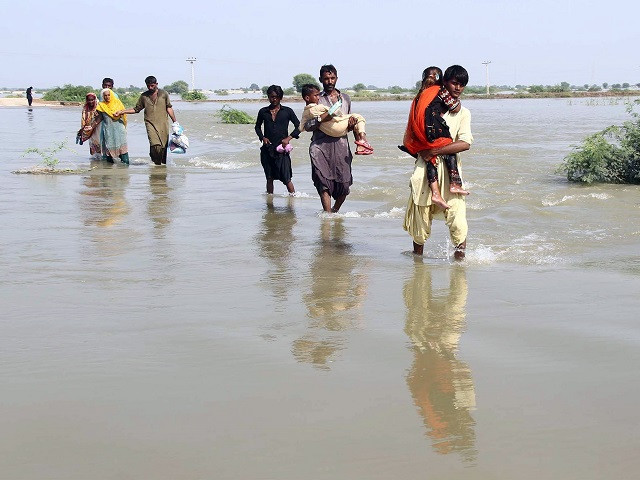
The Sindh government decided on Sunday to cut the Indus Highway from three locations in the Dadu district to divert the floodwater towards the Indus river, as a slow-moving tsunami came within five kilometres distance from the main city of the district.
The residents of Dadu were on pins and needles for another day on Sunday as three rural union councils on the outskirts of the city came under water while two more faced imminent threat of inundation.
At least 70 villages in the three union councils, Pir Shahnawaz, Yar Muhamamd Kalhoro and Khudabad were flooded on Sunday. The tomb of Mian Yar Muhammad Kalhoro, who ruled Sindh from 1701 to 1719, was also surrounded by water.
The Indus Highway was cut at Ahmed Khan Jatoi village in Yar Muhammad Kalhoro union council. After the cut, some 20 more villages were bound to come under water. “We have changed the direction of the water to protect the district’s headquarters [Dadu],” Assistant Commissioner Dr Shahnawaz Mirani said.
Mirani said that after crossing the villages in Khudabad and Ameenani union councils and overflowing the highway, the flood would reach near the Larkana-Sehwan (LS) bund [embankment] along the Indus river, where the bank would be given another cut.
Hundreds of residents of those villages took to the Indus Highway to stage a sit-in, blaming the government for not making any arrangements for their evacuation and shelter before planning to flood them to protect Dadu city.
Given the government’s estimate of the average population of the union council in Sindh, around 125,000 people may be affected in those five union councils. However, the officers were still reluctant to share the exact figures.
The protesters said the officials were well aware that the rural parts surrounding Dadu city would eventually go under water but they did not bother to arrange transport or even timely inform the people to move out.
Meanwhile, another grid station was in danger of flooding. Officials said that after Bhan Syedabad grid station in Jamshoro district, the Dadu-based grid station of the National Transmission and Dispatch Company (NTDC) was also under threat from the floodwater.
The army and the local people helped the irrigation authorities and the staff of the NTDC to build a dyke around the facility. Sindh Energy Minister Imtiaz Shaikh expressed the fear that if the grid was shut many parts of Sindh would face power outages.
Prime Minister Shahbaz Sharif also took notice of the situation and directed the authorities concerned to ensure that the power supply was not interrupted.
Separately, the police and the irrigation officials came face to face with the hundreds of residents of Bhan Syedabad and nearby areas after they tried to cut open a watercourse, Pir Shaakh.
The people gathered at the site asked the police to kill them first before giving the cut in that watercourse. They said that the breaching the watercourse would flood Bhan Syedabad, which is being protected by the townspeople from flooding for more than a week.
Ali Bux Pitafi, the station house officer (SHO) of the Khudabad police station, told the protesters that he had been directed by the local member of the Sindh Assembly to help the irrigation officials give the cut to release water towards Bhan to protect Dadu.
Flood aid
According to a news report, the US government has approved an additional $20 million in aid for flood victims in Pakistan after it received a report from Congresswomen Sheila Jackson Lee, who recently visited the flood affected areas.
The report also said that a fundraising event was held in Houston to help the Pakistani flood victims, which was addressed by Lee. Addressing fundraiser, Lee said that floods had caused widespread destruction in Pakistan and basic facilities were not available to the victims.
COMMENTS (1)
Comments are moderated and generally will be posted if they are on-topic and not abusive.
For more information, please see our Comments FAQ




1730959638-0/trump-(19)1730959638-0-165x106.webp)

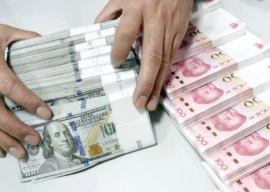
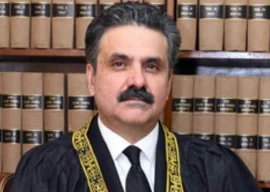




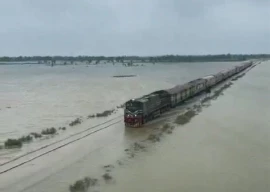
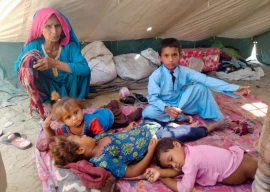
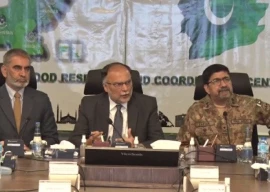







Please save my Sindh